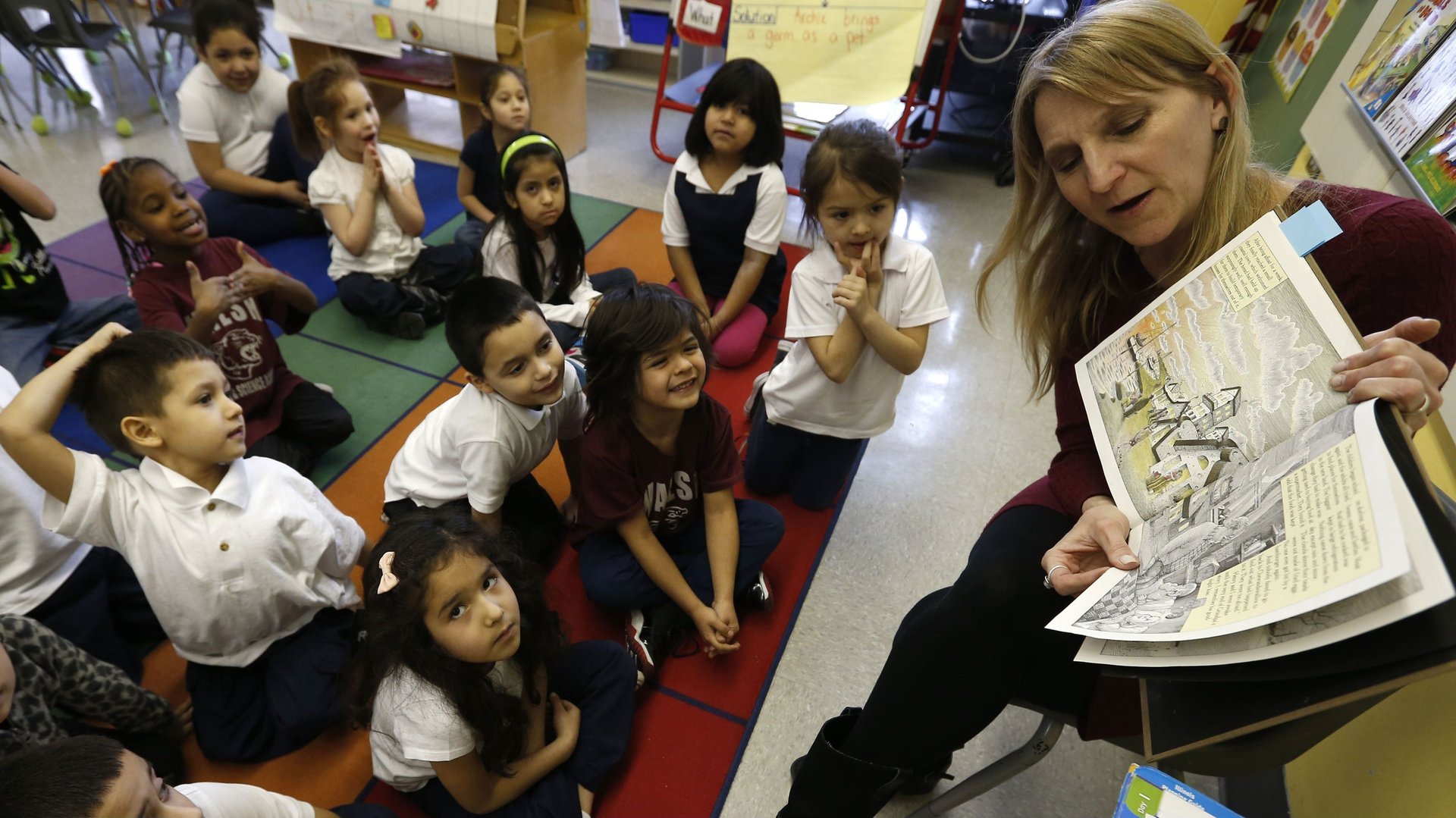Seven reasons why every industry should recruit teachers
This post originally appeared at LinkedIn. You can follow Ryan here.


This post originally appeared at LinkedIn. You can follow Ryan here.
Not only do great teachers perform a difficult and exhausting job—they could probably outperform many of your salespeople, project managers, and executives.
1. Great teachers are creative geniuses
Great teachers aren’t just cutesy arts and crafts gurus. They have to figure out how to squeeze too many objectives into insufficient time, to a diverse group of learners, in an engaging way, while tracking progress, accommodating for disabilities, and differentiating for learning styles—oh yeah, and keep a small army of adolescents focused on learning. I’ve watched confident and successful business people transition into the classroom, and walk out each day looking like they’ve exited a war zone! Hanging out in a classroom and letting kids throw paper airplanes at each other is easy—great teaching is extremely difficult, and requires outside the box thinking!
2. Great teachers don’t clock out
A teacher’s day is never over, and contrary to popular belief, it isn’t the ideal job for family minded individuals. Teachers take their work home and are never finished planning, improving, and analyzing data. Great teachers are obsessed with improvement! I’ve personally been called into a meeting with an assistant principal who told me to spend less time at school! Summers are filled with professional development, planning, and supplementing a meager income.
3. Great teachers are PR experts
If you think customer service reps deal with crazy people, just wait until you see those same people in a parent-teacher conference! Teachers are often called upon to field difficult questions and outlandish requests from irate and sometimes unreasonable parents, while trying to keep the school or faculty from getting sued. Teachers must communicate with diverse groups of people effectively, addressing different parties in different ways.
4. Great teachers are salespeople
If you think it hard to convince somebody to buy a product or service, try convincing a twelve year old boy to carefully edit an essay, or try convincing an entire room full of teenagers that Algebra II will have an impact on their lives. Great teachers are spin doctors, understanding how to elicit the response they want from a rough crowd. Great teachers learn to sell themselves and their products to a room full of people who aren’t shopping for them.
5. Great teachers are leaders
I believe that every teacher should list “manages others” on job applications. If you think managing employees is hard, try managing students! Students are like immature employees with tenure—you can’t fire them! Imagine this… you are managing a call center where your employees are anyone who wants to show up within a certain area of your city. Furthermore, you can’t pay them, you can’t make them leave, and you have a legal responsibility to make them perform as if they were carefully recruited. How many managers do you know that could succeed in that position? That’s what great teachers do every day!
6. Great teachers don’t panic
Great teachers are crisis managers, having experience with fire drills, where they not only have to evacuate themselves, but must evacuate a group of children in an orderly fashion. Teachers understand that their own sense of calm and confidence is the glue that holds the entire room together in a crisis. Who wouldn’t want somebody like that on their team? Speaking from personal experience, I had to keep a middle school class engaged in learning while a SWAT team with assault rifles passed by outside, and try to keep the students from noticing them outside my window. Add to that, my own 5-year-old son was in a classroom down the hall. Did that phase me? Of course not—I’m a teacher. (maybe it phased me a little)
7. Great teachers live Mission Impossible every day!
Teaching is often a thankless profession with impossible objectives. A teacher’s job is to help every student in their class be the best they can be, and to guarantee the outcome. We know that our job is technically impossible, yet we do the best we can, to the point of physical, mental, and emotional exhaustion. We do it because we care about the kids—because we believe in our mission, and we believe in ourselves. If you give an impossible task to a teacher, it’s nothing new. Our typical day is filled with incredible challenges—and that’s how we like it—and that’s why we teach. We’re resilient, because we have to be—because we show up every day to a profession with a job description that reads “Mission Impossible”.